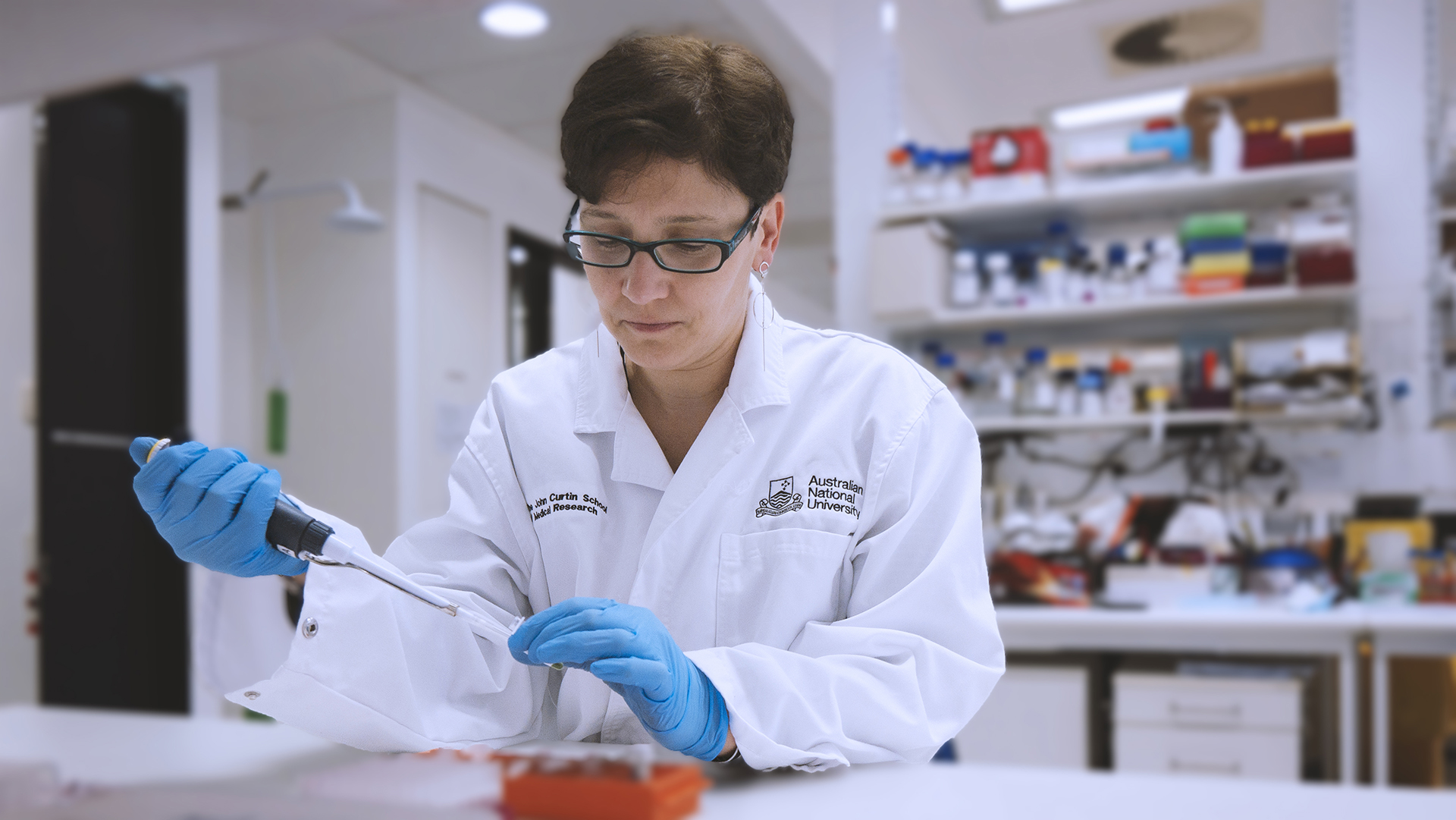Cancer Council ACT backs research on therapy for chemotherapy-induced low platelet count

A research project led by Dr Rita Ferreira from the John Curtin School of Medical Research (JCSMR), Australian National University, has been awarded a Cancer Council ACT Research Grant for this year.
The $65000 funding will support the team’s exploration of new therapies to manage abnormally low blood platelet count—a serious, treatment-limiting complication in cancer patients undergoing chemotherapy. Another ANU project on bowel cancer, led by JCSMR researcher Dr Anukriti Mathur, was also awarded a $65,000 grant.

L-R: Dr Paul Craft (CCACT Board), Her Excellency Mrs Linda Hurley, Professor Elizabeth Gardiner, Dr Amandeep Kaur, Dr Rita Ferreira, His Excellency General the Honourable David Hurley AC DSC (Retd), Roger Buckley (CCACT Board President). Image: Cancer Council ACT
Platelets are crucial blood cells for preventing excessive blood loss. In healthy people, the levels of platelets in the bloodstream are well-regulated. In cancer patients, however, low numbers of circulating platelets, also known as thrombocytopenia, are commonly observed as a side effect of many cancer treatments, including chemotherapies.
Chemotherapy-induced thrombocytopenia (CIT) often, if not always, leads to limiting, delay or cessation of treatments alongside a significant rise in bleeding risk to patients, explained Dr Ferreira, Research Fellow at the Cancer Therapeutics Group at JCSMR.
“Identifying new drugs that prevent or treat CIT in cancer patients is critical as this will allow chemotherapy to continue improving the chances of cancer remission,” she said.
Now, anti-cancer drugs that inhibit RNA Polymerase I (Pol I) transcription may have the potential to address this unmet need.
The first-in-class Pol I transcription inhibitor CX-5461, for example, has shown not only therapeutical efficacy in various pre-clinical models of cancer but also a unique effect of enhancing platelet numbers.
“Dr Kylee Maclachlan, a very attentive haematologist, noticed a strikingly consistent increase in platelet count in mice treated with the inhibitor,” said Professor Elizabeth Gardiner, Deputy Director of JCSMR and Co-Chief Investigator of the awarded project.
The researchers also observed that CX-5461 treatment selectively increased platelet numbers in haematological cancer patients in Phase I clinical trial without affecting the counts of other blood cells.
The discovery of this platelet-increasing property soon snowballed into a collaboration between experts in Pol-I inhibitors led by Dr Ferreira and the late Associate Professor Kate Hannan and experts in platelet biology led by Dr Amandeep Kaur and Professor Gardiner.
“Together, we have a unique opportunity to determine if we could use these novel drugs to prevent or treat CIT,” said Dr Ferreira, who developed a library of novel Pol I inhibitor compounds working with Associate Professor Hannan.
In the current project, the team aims to validate the ability of CX-5461 to counteract CIT and figure out whether any second-generation Pol I inhibitors have the same property.
“This grant support will allow us to expand our experimental framework and assess the utility of these inhibitors to offset CIT,” said Dr Ferreira.

JCSMR PhD students Vijay (right) and Simone Brysland(left) are attending the ISTH 2022 Congress this July. Image: Calo Huang
Meanwhile, JCSMR PhD student Vijay Bhoopalan, who has been heavily involved in the laboratory work relating to Rita’s application, is going to share the findings with researchers worldwide.
Vijay has been selected and given a travel fellowship to present the team’s work at the ISTH Congress, the world’s largest international meeting in thrombosis, haemostasis, and vascular biology, in July.
“My presentation will summarise our existing data in mice and humans that show an isolated, controlled and sustained in circulating platelets with no changes in the function of platelets,” said Vijay, PhD student at the Mechanisms of Thrombosis and Cancer Group.
“We think our discovery will allow oncologists to be more confident with treatment of patients with cancer,” said Professor Gardiner.
Dr Ferreira hopes the data generated by this research project will allow them to move quickly into clinical trials, “with the ultimate goal of having a treatment for CIT in the clinic in the foreseeable future,” she said.
